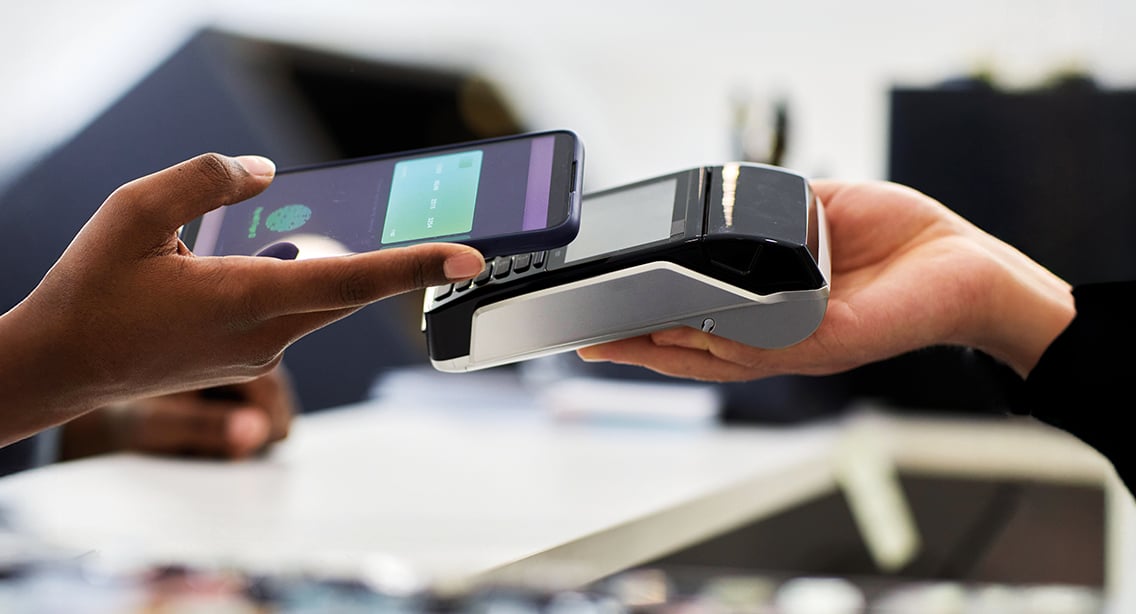It was natural that the growing focus on digital banking in Africa should begin with the retail sector before, now, being extended into the small and medium-sized enterprise (SME), corporate, business and investment segments. Yet bank approaches to their retail customers are also changing as they begin to offer a wider range of products and more customer-centric services in an effort to both increase average revenue per customer and create a more personalised relationship.
Innovation in the sector is being driven by diversity in the approaches and origins of the various players involved. The continent’s traditional banks have been challenged by digital-first or neobanks, while telecoms and mobile money providers offer further competition, with all providers benefitting from fintech developers.
Digital-first banks do not have the same legacy costs as established banks, which must maintain older systems alongside newly launched platforms, while also attempting to integrate the old with the new.
While there are substantial costs in building digital platforms, the long-term costs of this approach are considered to be substantially lower than those involved in maintaining large branch networks, including in terms of the number of staff employed.
The recent Next Gen Retail Banking report produced by banking finance platform developer Backbase and African Banker magazine found the top three priorities in African digital banking were: improving operational efficiency, expanding access to financial services and increasing market share.
The governments and regulatory authorities of some countries, including South Africa and Kenya, have been relatively quick to introduce supportive legislation to encourage investment. Many of Africa’s digital-first banks, such as Tyme Bank, are based in South Africa, while Kenya is an important hotbed of digital financial services innovation.
While digital banking reduces costs for the banks involved, it is also driving the provision of financial services to the previously unbanked by allowing people to secure accounts even if they have no local branch.
Increasing access to financial services does predate the digital banking boom, with the density of branch networks on the African continent rising from 1.6/100,000 population in 2006 to 4.5/100,000 in 2015.
However, this figure has fallen slightly since then to 4.2/100,000 in 2022 according to World Bank figures, as banks of all kinds have focused their investment on mobile and online technology to reach the unbanked, and provide additional services and opportunities for generating more revenue to existing customers.
Yet while the proportion of the population with access to financial services of any kind is rising, it still stands at just 55%. A Backbase/African Banker survey report found that an even smaller proportion utilise digital banking services. Just 54.8% of the banks that participated in the survey said that at least 40% of their customers currently used mobile or online platforms.
Bespoke services
Both digital-first and traditional bank players tended to focus on launching mobile and online banking platforms in the retail sector, to attract or retain as many customers as possible in the early years of the digital banking boom.
A lot of these platforms initially restricted their ambitions to basic services, such as transferring money, paying bills and checking balances. They are now making their services more sophisticated by offering other retail services, such as lending; by expanding into other segments; and by refining their relationships with digital customers.
This final trend is characterised by a strategy to make services as bespoke to individual customers as possible in a ‘segment of one’. There is a risk that providing services digitally rather than face-to-face can put barriers between banks and customers, but more customer-centric strategies are now seeking to create more personalised and meaningful relationships. This approach also has the potential to give banks much more detailed data, to allow them to make more bespoke product offers to customers.
Digital banking has the potential to revolutionise access to credit for many less wealthy people. It was previously often not commercially viable to offer loans for very small sums because of the administration load involved – and less than 10% of the population of Africa had access to credit in 2024, according to the European Investment Bank.
However, loan applications can now be automated without the need for bank staff oversight and the outcome of applications can be communicated to customers
within minutes rather than days or weeks as previously. This speed is likely to greatly drive up demand for small-scale finance.
Some banks are now also adopting omnichannel strategies, which involve working to ensure that customers have the same experience whatever method they use to access financial services, by integrating the operation and appearance of services across all channels.
This allows customers to switch between devices and different forms of service delivery without any difficulties or interruptions. The research shows that 84.4% of survey respondents are working to integrate digital and physical branch services.
Banks are moving beyond launching separate customer touchpoints to creating integrated and seamless services across physical branches, mobile apps, web platforms and contact centres.
Expanding digital literacy
African banks are also working to minimise the time it takes customers and potential customers to access services by making digital platforms very intuitive. An enormous 77.3% of survey participants said that limited digital literacy among customers was a big challenge, while 51.6% cited limited internet access.
If a large proportion of the population is unable to afford an internet-connected mobile phone and the data to operate it, then they are generally unable to access digital services and so have limited opportunity to gain the necessary digital literacy.
Improving these figures will be a long-term process but World Bank research in 2023 found that IT studies were included in the curricula of just half of all African countries. Even fewer teach financial literacy but most people probably learn most in both areas in their day-to-day activities, including from friends, family and online sources, although the soundness of information provided on the internet obviously varies massively.
Access to digital financial services will also be eased by falling mobile handset and data prices, and rising electrification rates to allow handset charging at home rather than at neighbours’ homes or solar kiosks, for instance.
Banks do have a role to play here in ensuring that they explain their offerings as clearly as possible. Coupled with sound security, this will help reduce the 54-59% of survey participants who said that they had concerns over using digital services and around cyber security.
Banks act ascustodians of both money and personal and financial information, which makes them targets for cyber attacks, which could result in huge losses and widespreadreputational damage.
Two of the main recommendations in a report published by consultants
McKinsey and Company in December 2022 to drive up African banks’ return on equity (ROE) were “driving awareness of digital-channel benefits” and “adopting a pervasive approach to customer education and support across digital channels”, including through the provision of demos, webchat support, and enhancing the ability of customers to search for and access support in their own language.
According to McKinsey, banking sector ROE was 1-2% below pre-Covid-19 levels in Africa’s biggest banking markets (except Kenya), while operating costs had been flat, although revenues were actually higher than before the pandemic.
McKinsey found that a large part of the banking value chain was still dependent on manual tasks being carried out by bank employees, which generated 60-70 % of costs, so the focus on digitalisation should be central to helping to lift productivity rates.
In the long term, attracting more customers and providing services to them at a lower cost will improve most bank metrics and generate more income to be reinvested in improving their operations.




